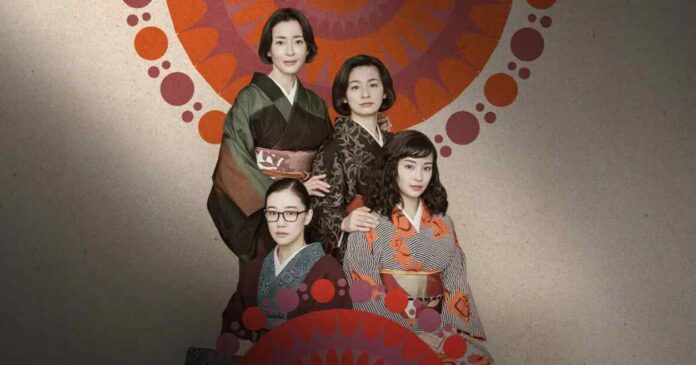Asura is a new drama on Netflix that takes you into a web of family secrets, love, and betrayal that is often painful to follow. It takes place in Tokyo in 1979 and is about four sisters who find out a terrible truth about their father. Having a son with another woman has been his double life for years. This news sets off a chain of events that forces the sisters to face not only their dad’s affair but also family problems that have been building for a long time. As the story goes on, though, viewers are left wondering: was Asura based on real events, or is it all made up?
Netflix’s Asura – A Fictional Story Rooted in Real Emotions
At its core, Asura is a story that is made up. The series is an adaptation of Like Asura (originally Ashura no Gotoku), a novel by the renowned Japanese author Kuniko Mukoda.Mukoda won the Naoki Prize for her writing about families. Even though the novel isn’t based on a true story, readers connected with Mukoda’s portrayal of complicated human relationships, especially those between siblings, because it felt so real.
The book by Mukoda was turned into a Japanese TV series in 1979 and then a movie in 2003. The most recent retelling is Hirokazu Kore-eda’s Asura on Netflix. It makes some changes for a modern audience, but for the most part stays true to the original work and the time period it portrays. The series shows how the Takezawa family falls apart after the father’s affair becomes public. But at its core, the show is still about how each sister deals with betrayal and the deeper problems she faces.
Asura isn’t based on real events, but it does use a lot of information from the society in which it takes place. Asura takes place in a time when Japanese women were expected to do certain things around the house. It looks at how power works in a family and how each sister tries to break free from those expectations. The problems the Takezawa sisters had family secrets, betrayal in marriage and the weight of tradition—are problems that many families have, no matter what culture they are from.
The sisters are complicated people who represent different aspects of the problems women face in a society dominated by men. The show shows different sides of sisterhood, loss and healing, from Takiko, the youngest sister, who finds out the truth, to Tsunako, the oldest sister—who is dealing with her own grief. The name Asura is symbolic. It comes from Buddhist and Hindu beliefs and means the inner conflict between power and peace. It’s a good way to describe the emotional and family battles each character is going through.
Is It Based on Real People?
Are any of the characters or events in Asura based on real people? The short answer is no. Like many of Mukoda’s other works of fiction, this one came from her imagination. Even though the characters are very real and have a lot of feelings, they are not based on real people. There are universal themes like betrayal, family conflict and personal growth. However; the Takezawa sisters’ story is made up to make people think about how complicated family relationships can be.
Asura isn’t based on a true story but it does touch on real feelings and problems that a lot of people have with their own families. It’s a strong look at the secrets that separate people and the ties that bind them. When you watch the drama—you’re not just seeing the story of one family; you’re seeing how people live in general.
Read More: The Pitt Season 1, Episode 2 Recap: “8:00 A.M.”











